A clinical molecular geneticist is a physician expert who performs and interprets molecular genetic and cytogenetic tests. They play a critical role in diagnosing and managing genetic disorders by providing laboratory-based consultations about a wide range of inherited diseases caused by genetic abnormalities.
Understanding the Role of a Clinical Molecular Geneticist
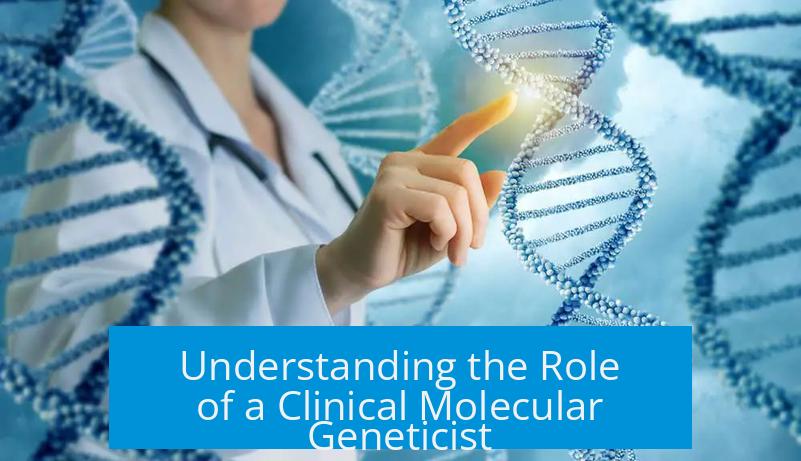
Clinical molecular geneticists focus on inherited diseases and genetic abnormalities. They evaluate molecular data from blood, tissue, or other patient samples to identify gene mutations or chromosomal changes. Their expertise aids physicians in treatment planning, genetic counseling, and disease management.
Besides diagnostic testing, these specialists often consult on complex cases. They interpret test results considering clinical context and may recommend further analyses. This role bridges laboratory science and clinical medicine.
Educational Pathways and Specialized Training
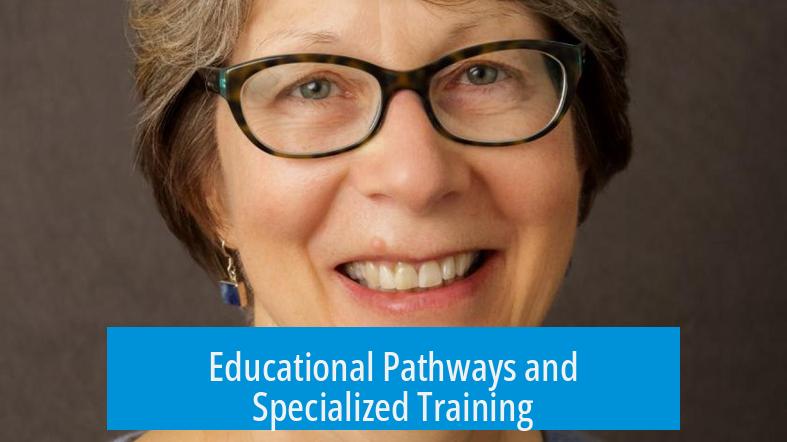
Core Academic Qualifications

To become a clinical molecular geneticist, one generally needs a PhD in molecular biology or genetics, combined with a Doctor of Medicine (MD) degree to practice clinically. Many clinical molecular geneticists hold a PhD in genetics or a related field and have completed postdoctoral training focused on clinical molecular genetics.
- PhD in Genetics or Molecular Biology is essential to understand underlying mechanisms.
- MD degree is needed to engage in patient care and clinical decision-making.
Residency and Fellowship Training
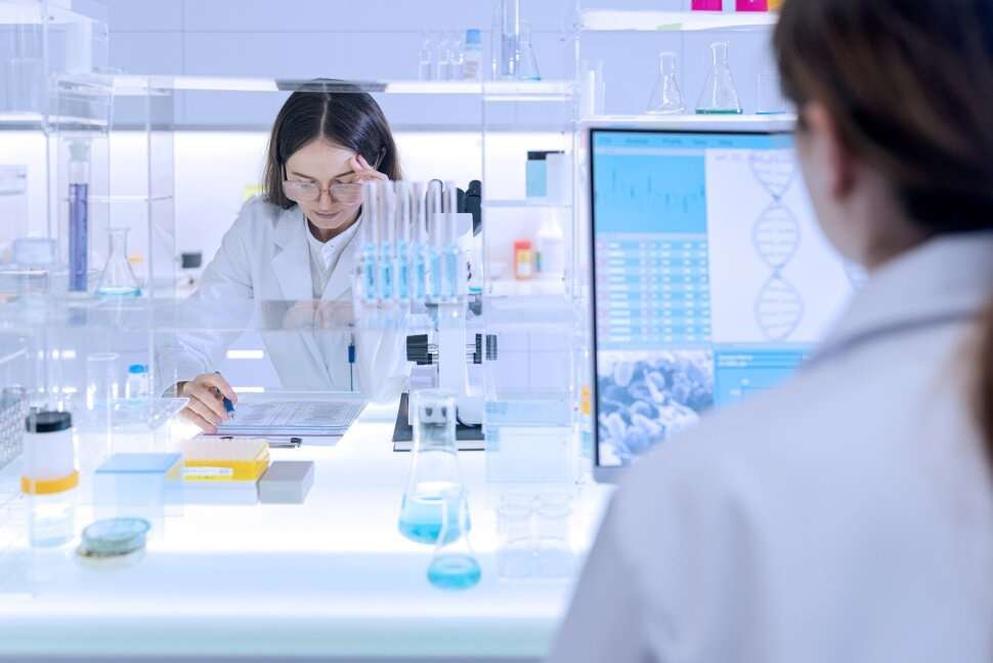
Training includes a minimum of two years of postdoctoral clinical molecular genetics fellowship. In North America, programs integrate molecular genetics and cytogenetics training under titles like Laboratory Genetics and Genomics (LGG). These fellowships prepare candidates to become laboratory directors in clinical genetics labs.
Another route for MDs involves completing a residency in pathology followed by a molecular pathology specialization, though this path often emphasizes tumor genomics rather than inherited disorders.
Practical Training Components
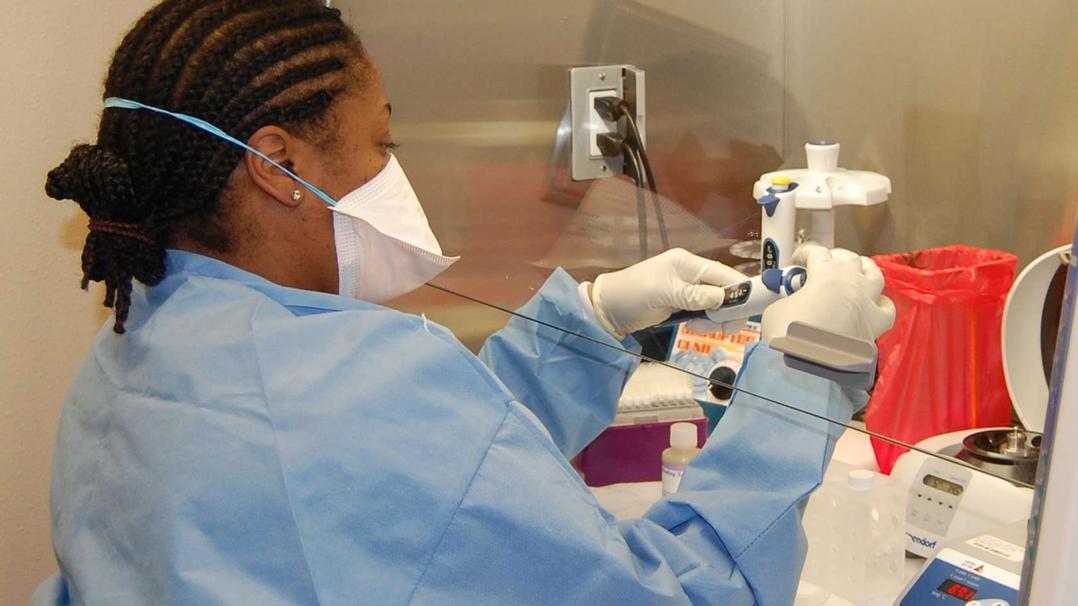
Trainees typically spend six months rotating through molecular diagnostics laboratories. During rotations, they gain hands-on experience performing tests such as DNA sequencing, fluorescence in situ hybridization (FISH), and array comparative genomic hybridization (aCGH). Coursework in medical genetics bolsters their theoretical foundation, while research projects develop critical thinking and problem-solving skills.
Certification and Board Examinations
After completing training, candidates become eligible for board certification. For instance, the American Board of Medical Genetics administers a certification exam every two years for clinical molecular genetics specialists.
Work Environments and Professional Roles
Clinical Settings
Clinical molecular geneticists commonly work at regional genetics centers within large hospitals or specialized diagnostic laboratories. They collaborate closely with clinical teams, providing test interpretations that guide patient management.
Industry Positions
Some clinical molecular geneticists transition to the pharmaceutical or biotechnology industry. In these roles, they may contribute to diagnostic test development, drug research, or personalized medicine initiatives.
Job Stability and Financial Aspects
The field of clinical molecular genetics provides strong job security. Specialists report stable employment prospects due to the increasing demand for genetic diagnostics.
Research funding often supports diagnostic laboratories, particularly when labs offer clinical services like prenatal diagnosis, carrier screening, and genetic testing. For instance, notable universities maintain funded labs through clinical test fees and service contracts.
Research Integration in Clinical Practice
Research projects frequently arise from diagnostic observations. A clinical molecular geneticist may notice unusual genetic variants or disease patterns during routine testing. These observations can prompt focused investigations and potentially lead to new molecular diagnostic assays.
While urgent clinical demands sometimes delay research, combining patient care and research fosters innovation and advances in molecular diagnostics.
Interpersonal and Marketing Skills
Collaboration and Communication
Clinical molecular geneticists regularly interact with physicians, genetic counselors, and patients. They explain complex genetic information and assist clinicians in interpreting test results within clinical contexts.
Competition and Laboratory Marketing
As genetic testing services expand, diagnostic labs must engage in outreach and marketing to maintain referral bases. Geneticists attend conferences and professional meetings to promote their labs and forge partnerships with healthcare providers.
Essential Competencies
- Attention to Detail: Success requires meticulous analysis to avoid diagnostic errors.
- Vigilance: Monitoring for rare or subtle genetic changes demands constant alertness.
- Carefulness: Accuracy is critical; small mistakes can lead to misdiagnosis or inappropriate patient care.
Resources for Aspiring Clinical Molecular Geneticists
- ABMGG Training Options — Outlines pathways for genetics training and certification.
- Clinical Genomics Careers Webinar Series (2023) — Provides insights into career opportunities.
- Search for “Laboratory Genetics and Genomics Fellowship” to find laboratory training programs across regions.
Summary of Key Points
- A clinical molecular geneticist diagnoses inherited and genetic diseases by performing and interpreting molecular tests.
- They require advanced degrees: typically a PhD in genetics and an MD for clinical practice.
- Training includes postdoctoral fellowships or pathology residencies with molecular specialization.
- Workplaces range from hospital genetics centers to pharmaceutical companies.
- Strong job security exists due to continual demand for molecular genetic diagnostics.
- Research often integrates with diagnostic work, promoting new test development.
- Attention to detail and careful analysis remain central skills.
- Professional engagement involves collaboration, patient interaction, and marketing efforts.
- Several dedicated resources guide training and career development.
The Clinical Molecular Geneticist: The Detective Doctor of Our DNA
So, what exactly is a clinical molecular geneticist? They are the doctors with a magnifying glass aimed straight at our genes. They perform and interpret complex molecular genetic tests to diagnose inherited or genetic diseases. This role falls somewhere between Sherlock Holmes and Dr. House, but with DNA samples and microscopes instead of magnifying glasses and witty quips.
These specialists diagnose and manage conditions caused by genetic abnormalities. Think of them as your genetic consultants—experts who untangle the mysteries hidden within your DNA strands to provide medical answers and guide treatment decisions. They serve primarily at large hospitals, specialist labs, or NHS regional genetics centres, providing essential services that range from prenatal diagnosis to carrier and diagnostic testing.
What Does It Take to Become a Clinical Molecular Geneticist?
The educational path is rigorous. You generally need both a PhD in Molecular Biology and an MD (Doctor of Medicine). That’s a lot of schooling because this job isn’t just science; it’s clinical application too. For example, one professional shared: “At least that’s what I did.” So, yes, it’s about studying both the microscopic and the medical.
There’s a twist in the tale depending on the role you want. If aiming to be a technologist or technician, a diploma or degree program suffices (common in Canada and the US). But to be a physician consultant, you’ll need to finish medical school and a residency.
In the US, an increasingly popular training route is the Laboratory Genetics and Genomics (LGG) Fellowship. This combined fellowship prepares you as a laboratory director in clinical labs specializing in genetics. Another approach for MDs is to do a pathology residency followed by specialization in molecular pathology—a route often taken by those keen on tumor genomics.
- Curious about training options? Check out ABMGG training resources.
- Want to find LGG fellowships near you? Simply google “Laboratory Genetics and Genomics Fellowship.”
- Explore career insights from the Clinical Genome Resource consortium’s 2023 webinar series.
Daily Life and Job Security: What to Expect?
A clinical molecular geneticist’s work isn’t confined to the lab bench. They spend time interpreting complex data, consulting with physicians, and sometimes explaining findings directly to patients. This mix of science, medicine, and communication demands a sharp, detail-oriented mind with exceptional vigilance and patience.
Job security in this field? It’s rock solid. As Maximilian Muenke, a respected expert, suggests, clinical molecular genetics offers a “job for life.” The demand is fueled by ongoing needs for genetic testing, prenatal diagnostics, and personalized medicine—services that generate much of the research funding in university diagnostic labs like Johns Hopkins and UNC Chapel Hill.
Research: The Bonus Track
While clinical duties are paramount, research opportunities often arise naturally. For instance, a curious geneticist might notice an unusual DNA pattern and start investigating it further. Such research can lead to new molecular tests or improved diagnostic methods. Sometimes, these studies temporarily take the backseat when the clinic gets busy, but they remain a significant part of advancing the field.
Marketing and Collaboration: The Unsung Skills
Genetics might seem strictly scientific, but clinical molecular geneticists must also master a bit of marketing. The field has grown competitive. They attend scientific meetings—much like any researcher—but also pitch their lab’s services to physicians to gain referrals. This ensures a steady stream of samples and funding.
They don’t just deal with other scientists and doctors; sometimes, they interact directly with patients, explaining genetic test results or counseling on inherited risks. This human touch adds a rewarding dimension to the career.
Key Skills You Need
- Eye for detail: Genetics is intricate. Overlooking a tiny mutation can change everything.
- Vigilance and patience: Results can be complex or ambiguous, and catching subtle differences is critical.
- Communication: Explaining findings in simple terms to patients and collaborating with medical teams.
Are you ready to dive into the microscopic world of DNA, becoming a medical detective with a PhD and MD in hand? If yes, this career can offer you a stable, intellectually stimulating job with broad impact in diagnostics and research. And hey, who wouldn’t want to be the superhero quietly saving lives, one gene at a time?
What qualifications are needed to become a clinical molecular geneticist?
You typically need a PhD in genetics or molecular biology and a medical degree (MD). Postdoctoral training of at least 24 months in an accredited clinical molecular genetics program is required as well.
What types of training programs are available for clinical molecular geneticists?
In the US, Laboratory Genetics and Genomics fellowships combine molecular genetics and cytogenetics training. MDs can also complete pathology residencies with a molecular pathology focus.
Where do clinical molecular geneticists usually work?
They work in NHS regional genetics centers, large hospitals, or specialized clinical labs. Some also work in pharmaceutical companies on genetics-based research and diagnostics.
How secure is a career in clinical molecular genetics?
The field is considered very stable with strong job security. Many labs are funded through diagnostic services like prenatal or carrier testing, supporting both research and clinical work.
Do clinical molecular geneticists interact directly with patients?
Yes, they sometimes have direct patient interaction. They also work closely with physicians to consult on test results and genetic diagnoses.
What skills are critical for success as a clinical molecular geneticist?
Attention to detail and careful vigilance are essential. Molecular geneticists must thoroughly analyze data to avoid errors in diagnosis and testing.


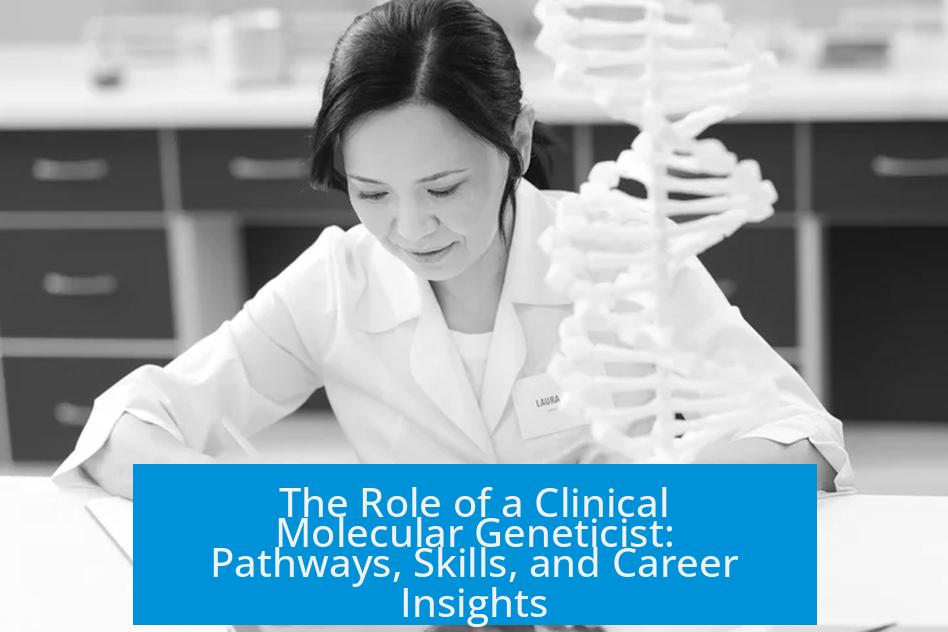


Leave a Comment